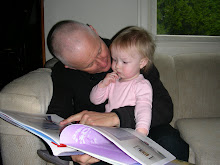Perhaps in “Permaculture 2” I was unfair to the content of the presentation. The speaker did not simply say, “We just have to change what our priorities are.” He offered a helpful piece of advice for discovering a way toward positive change in our priorities.
He said, “observe and interact.” The key to healthy change is paying attention to the situation as it is and being present to the realities of the world in which we live. Too many attempts at producing change are driven by ideology. The person desiring change has a vision, a “master-plan,” and then approaches the situation attempting to impose the “master-plan.” The outcome is always violence in some form.
To “observe and interact” is to honour the realities of our situation as they are. We begin by listening, watching, keeping all our senses open and attuned to what is going on. In his book The Mindful Leader, Michael Carroll says,
Leading others requires that we first open to the world around us… Opening is how we become available to what is actually going on – how we become realistic about our circumstances, abandoning our version of reality for experiencing reality itself.
Having deeply opened to the realities of our situation we are able to work for change, not as a disinterested, “objective” observer but as an active participant in the system in which we hope to facilitate change; we “interact.”
As a participant invested in the system, we attempt to understand another permaculture principle: “The problem is the solution.” We look for the key to change within the situation itself. “Problems” are not really problems. “Problems” actually point the way forward if we pay close enough attention and embrace them as opportunities.
This requires acceptance, patience, sensitivity, openness, and a willingness to sit lightly to our agendas, needs, and demands. Permaculture sounds a lot like spiritual practice. It requires humility, surrender, flexibility, and gentleness. These qualities point the way forward for anyone who desires to facilitate deep, lasting and transformational change in any system.

2 comments:
Thanks Christopher,
It's grounding to remember to focus on harmony and openness with our surroundings. One of the things our culture struggles with is the desire to hide, to pass by community and not be known...
I guess that's why people own dogs! have to get up bright and early and take them out to play with all the neighbour dogs!
Post a Comment